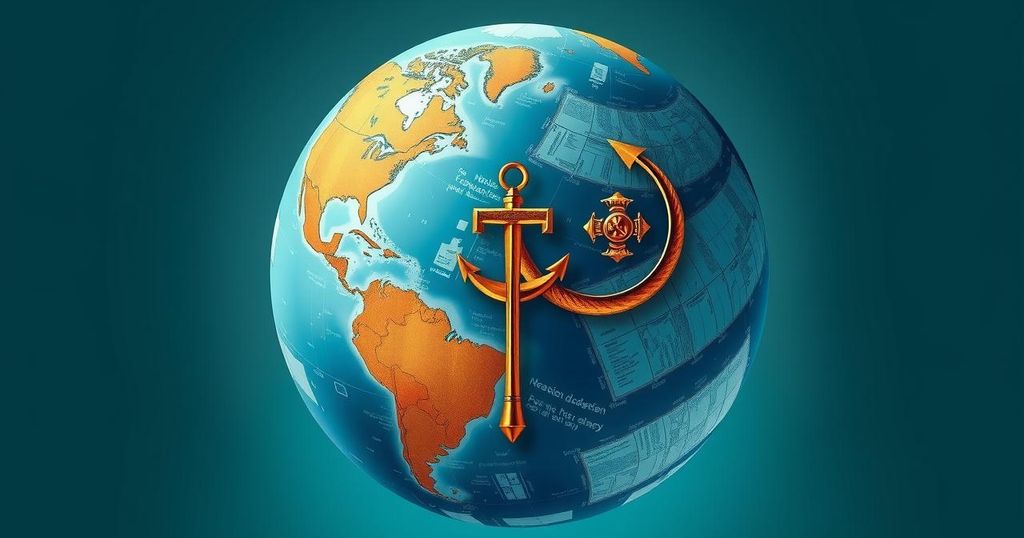Russia’s View on Global Diplomacy: Insights from Dmitry Polyanskiy
Dmitry Polyanskiy, Russia’s UN deputy representative, presented a critical view of the Biden administration’s handling of the Ukraine conflict, contrasting it with Trump’s more pragmatic approach. He praised Saudi Arabia’s emerging diplomatic role and discussed the relevance of Arab nations in resolving the Palestinian issue, as well as Russia’s support for Sudanese authorities and Syria amid ongoing crises.
Dmitry Polyanskiy, the first deputy permanent representative of Russia to the UN, discussed the complexities of the Ukraine conflict and the rising role of Saudi Arabia in international diplomacy during an interview on Arab News’s “Frankly Speaking.” He criticized the previous U.S. administration under Joe Biden for exacerbating the conflict, arguing that it had sought to create anti-Russian sentiments rather than fostering a peaceful resolution. Polyanskiy believes this contributed to the escalation leading to the Russian military operation in February 2022.
He contrasted Biden’s approach with that of former President Donald Trump, asserting that Trump offered more realistic perspectives, understanding the battlefield dynamics that prioritize peace. Polyanskiy commended recent dialogues in Saudi Arabia between U.S and Russian officials, suggesting these discussions could lead to a ceasefire over the Black Sea and indicate Saudi Arabia’s emergence as a diplomatic center.
Reflecting on the evolving diplomatic landscape, Polyanskiy emphasized the diminishing relevance of historical centers like Geneva, due to perceived biases, and praised Saudi Arabia for facilitating peace talks. He noted that Saudi Arabia’s proactive approach in diplomatic efforts represented a positive development, and expressed gratitude towards the kingdom for its hospitality and willingness to engage multiple stakeholders.
On issues concerning Gaza, Polyanskiy acknowledged Russia’s support for Palestinian rights but recognized the U.S. as a critical player in influencing Israeli policies. He highlighted that the success of addressing the Palestinian issue would depend significantly on the collective mobilization of Arab nations, recollecting recent discussions at an Arab summit regarding Gaza’s future.
Polyanskiy stated that any resolution to the Israeli-Palestinian conflict must adhere to the two-state solution principle, emphasizing Russia’s consistent stance. He criticized previous normalization attempts between Arab nations and Israel that neglected Palestinian rights, expressing hope that future U.S. policies would reflect the importance of these core issues.
Turning to the Sudan crisis, he articulated Russia’s support for the Sudanese government during the ongoing conflict, welcoming the recent military advancements against the paramilitary Rapid Support Forces. Polyanskiy refuted claims of famine in Sudan, suggesting that mismanagement rather than a lack of food was the root cause of hunger.
Addressing the situation in Syria amidst turmoil following Assad’s ousting, Polyanskiy reaffirmed Russia’s commitment to fostering inclusive governance in Syria while combating terrorism. He refrained from engaging in hypotheticals regarding potential repercussions for Assad, asserting that humanitarian concerns had driven Russia’s asylum arrangement and emphasizing the longstanding ties between Russia and Syria.
In sum, Dmitry Polyanskiy expressed the need for a reassessment of diplomatic strategies surrounding the Ukraine conflict, while recognizing the growing influence of Saudi Arabia in international negotiations. He underscored the importance of collective action among Arab states regarding the Palestinian issue and advocated for a two-state solution. In discussions about Sudan and Syria, Polyanskiy reiterated Russia’s positions, emphasizing humanitarian support and the necessity of stability for long-term peace.
Original Source: www.arabnews.com




Post Comment